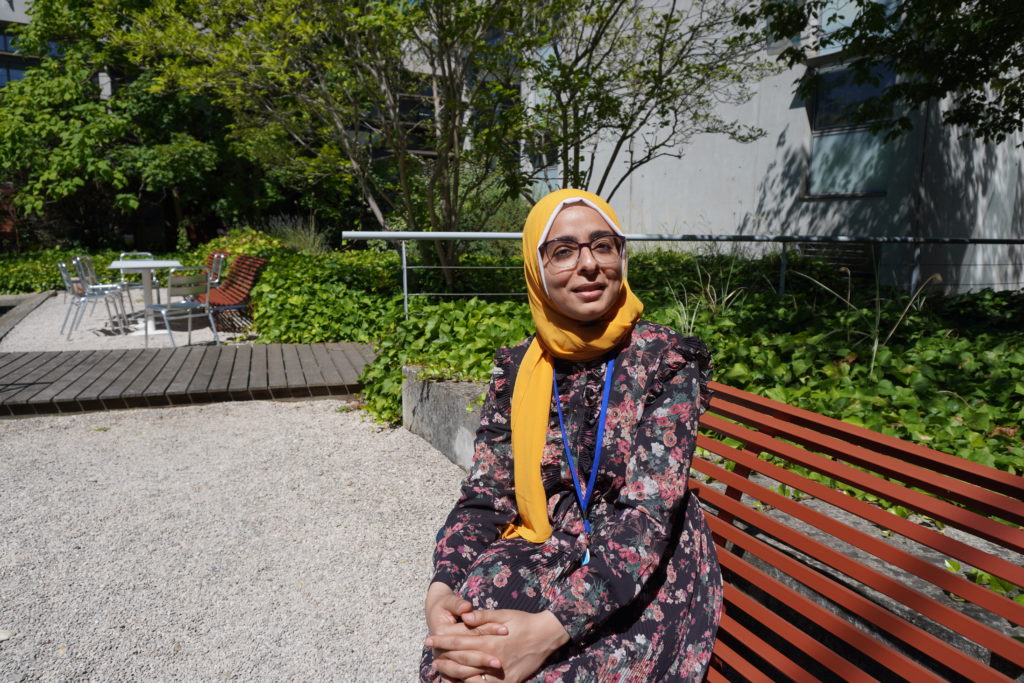

What is your background and how did you come to Lyon?
I studied in Egypt, at the Faculty of Sciences of the University of Alexandria. I’ve always been very interested in embryology, but I think in France it’s called cortical development, which is how the brain develops through the ages. However, there is no specialty in Neuroscience at Alexandria University. So I did a Masters in Comparative Anatomy and Embryology. During my course, we had six months of internship to do. So I went to Stockholm for six months at the Karolinska Institute. This is where I trained in molecular biology techniques (PCR, Western Plot etc…) first of all to better understand the mechanisms at work in liver cancer. comprendre les mécanismes à l’œuvre dans le cancer du foie.
After my master’s, I wanted to do a doctorate in neuroscience and that’s how I came to France, to Marseille. I did my thesis under the supervision of Dr. Monique Esclapez from the Institute of Systems Neuroscience who is a specialist in neuroanatomy. I did a lot of tracing manipulations in the brain to study cortical connections. I worked on healthy animal models (mice) and also on epileptic models. I validated my doctorate in joint supervision: specialty neurosciences at the University of Aix-Marseille and Comparative anatomy and embryology at the University of Alexandria.
Throughout my experiences, I have acquired a lot of knowledge and expertise in neuroanatomy, tracing techniques, molecular and cellular development in the brain. However, I wanted to improve my knowledge by going down another level and embarking on genetic studies. This therefore oriented the research of my first post-doc. I finally found a position in Strasbourg with Dr Ipek Yalcin at the Institute of Cellular and Integrative Neurosciences. I have worked on chronic pain and depression. Depression, and mood disorders in general, always result from a problem between gabaergic and glutamatergic neurons. My work consisted in studying the molecular mechanisms of gabaergic neurons which are involved in depression.
You have just received a post-doctoral fellowship from the Center Hospitalier le Vinatier (amount?). Can you explain to us what this is about?
Following my first post-doc in Strasbourg, I will do a second post-doc with Pr Caroline Demily and Dr Angela Sirigu at the Institute of Cognitive Sciences Marc Jeannerod in Lyon during which I will study the oxytocinergic system and its potential involvement in social behaviors especially in autism spectrum disorders (ASD) and Williams syndrome. I intend to carry out transcriptomic analyses, that is to say a mapping of all the genes. The genes involved in the oxytocinergic system are thought to be either overexpressed (in Williams syndrome, corresponding to their « hypersociability ») or underexpressed (in autism spectrum disorders).
The funding generously allocated to me by Vinatier is intended to support this research.
How many subjects will be included in the study?
We have ten for the moment, but we would like to have thirty and parity between men and women because historically, scientific protocols have always taken male human models as a reference and since women do not have the same biological characteristics, it is high time to integrate this dimension into our scientific protocols, which will not fail, we hope, to increase knowledge on female autism.
